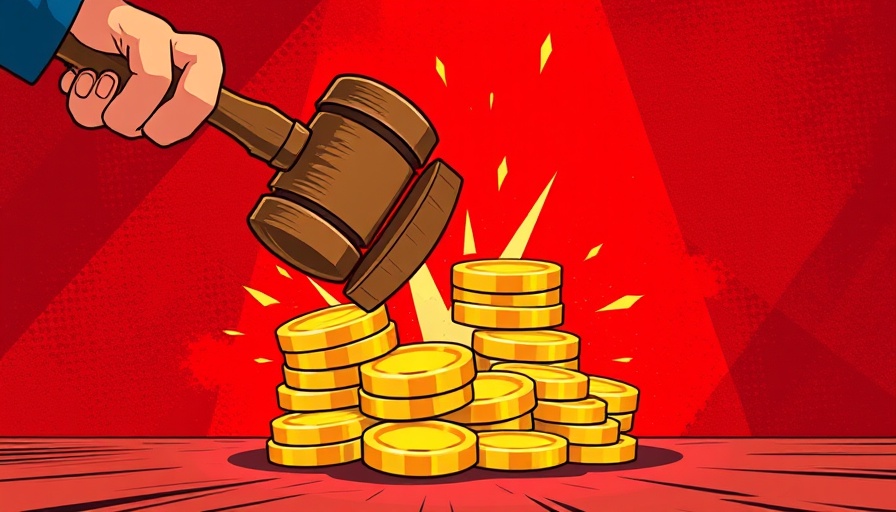
Trademark Disputes: A Reflection on Nigeria's IP Landscape
In the bustling world of fintech and digital innovation, the recent trademark conflict between Paystack and Zap Africa has sparked vital conversations around Nigeria's intellectual property (IP) laws. Paystack, a major player in digital payments, launched 'Zap,' its consumer product, only to find itself in a legal skirmish with Zap Africa, a startup in the cryptocurrency space. This dispute highlights the complexities of branding in Nigeria's rapidly evolving tech sector.
Why Does This Matter?
The stakes are high. Tobi Asu-Johnson, CEO of Zap Africa, expressed the emotional toll this legal battle is taking on his team, with investors withdrawing support amidst the turmoil. Such issues of brand confusion and trademark infringement are not merely legal debates; they affect livelihoods and the very future of innovative startups across the continent. If resolved in favor of Zap Africa, this case could set a pivotal precedent that reshapes how trademarks are enforced in Nigeria.
Understanding Trademarks in Nigeria
Nigeria’s trademark laws require distinctive marks to differentiate businesses. Paystack registered its trademark in December 2023, claiming 'Zap by Paystack' while Zap Africa also secured multiple trademarks across different classes as recently as March 2025. The conflicting claims highlight a gap in consumer clarity, raising questions about consumer protection and corporate responsibility in the era of rapid technological advancement.
The Broader Impact on Tech Entrepreneurs
This trademark battle unfolds against a backdrop of significant growth in the African tech scene. Nigeria, in particular, has become a focal point for startups, with innovations in AI, blockchain, and fintech leading the charge. However, as emerging tech disruptors continue to innovate, the legal frameworks governing their operations must evolve to provide clarity and support, rather than confusion and chaos.
Next Steps for Industry Stakeholders
It's crucial for stakeholders, including entrepreneurs and investors, to stay informed and proactive. By understanding the implications of these legal challenges, they can better navigate the complexities of the tech landscape. Advocating for clearer IP protections and collaborating to drive change could significantly boost investor confidence and stability in the sector.
As Nigeria’s innovation ecosystem grows, it’s vital for all involved to consider how disputes like these can be resolved in a way that promotes growth and sustainability. Engaging in discussions about IP reforms and providing resources for startups will be essential for charting a brighter future for tech in Africa.
 Add Row
Add Row  Add
Add 


 Add Row
Add Row  Add
Add 

Write A Comment